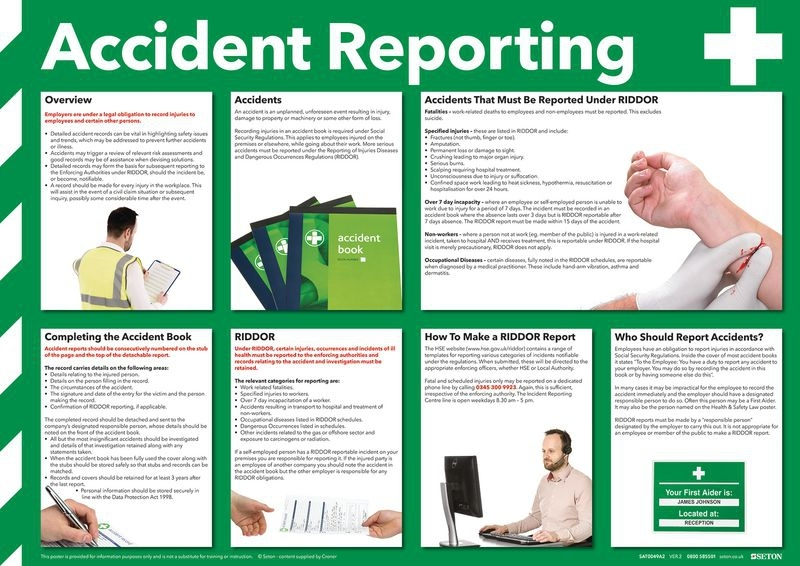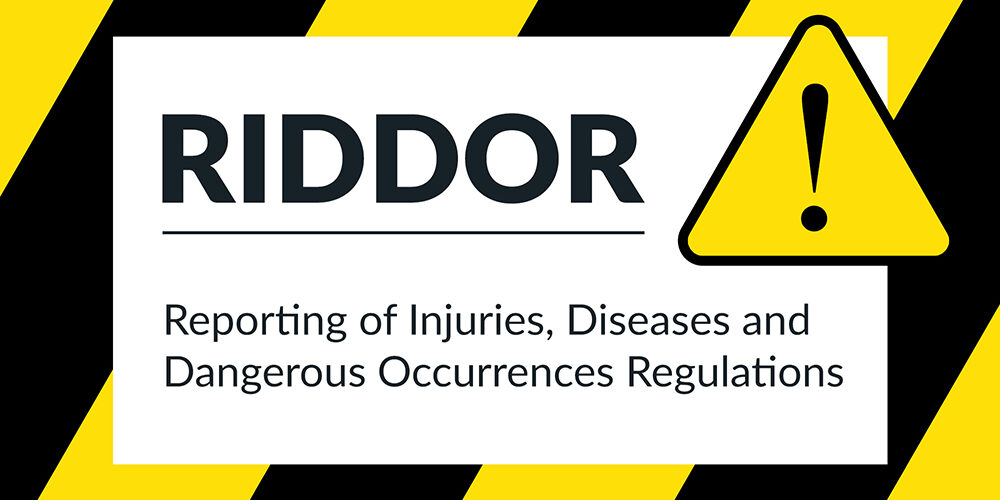Reporting
Reporting is an important part of a first aider’s role. It is always useful to keep a record of what happened to a casualty, for example:
>where the incident took place
> what you did to help the casualty
>who else was involved or helped you
>what advice you gave the casualty
>whose care the casualty was passed to.
Sometimes records need to be formal, such as an accident report book at work. Or they can be simple notes that you jot down after stopping to help at an incident on
holiday. It is useful to make the record as soon as possible after the incident while your memory of the event is fresh. Any notes or records should stick to the facts and
not include speculation or personal opinion; these notes and records can be used as evidence in legal action.
The information in these reports should be:
>taken into account during the ongoing risk assessment process
>used to review the organisation’s health and safety policy and arrangements so
that measures can be introduced to prevent similar accidents from happening
again.


Guide to completing reports.
- The time and date should be accurate. i.e., the time the ambulance was called.
- Names should be correct, especially if members of the public are involved.
- To gain an address, it’s always important to follow up.
- State if the accident was witnessed. Take a statement.
- State location and nature of employment/activity.
- Consider on-site policy in the event of an accident.
RIDDOR REPORTING
RIDDOR reporting In the workplace, you must report certain incidents arising from accidents at work under the Reporting of Injuries, Diseases and Dangerous Occurrences Regulations
(RIDDOR). This reporting must be done within specific times. Guidelines are set out on each page of the accident report book stating:
>which injuries, diseases or incidents need to be reported
>who to report them to and when.
Notifiable diseases
This guide gives details of when a disease must be reported to the local authority. This is done by a medical practitioner.
Early years settings such as nurseries must inform Ofsted when there is an outbreak of any notifiable diseases in their setting.
Keeping yourself informed
Both first aid and health and safety are evolving subjects. All first-aiders need to stay informed about changes.
Life Lines permits all its learners to use their online training platform in first aid at work. It is recommended that refresher training occurs each year with first aid at work and the requalification of certificates every three years.
The HSE strongly recommends a workplace first aider attend a skills refresher course annually.

